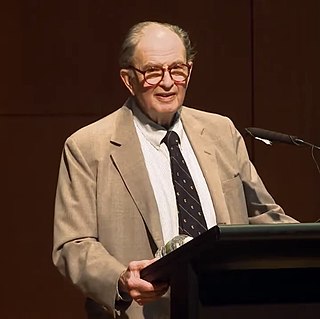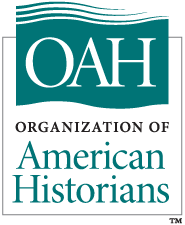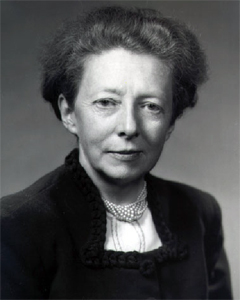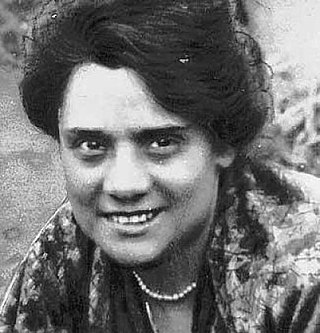Related Research Articles

Bernard Bailyn was an American historian, author, and academic specializing in U.S. Colonial and Revolutionary-era History. He was a professor at Harvard University from 1953. Bailyn won the Pulitzer Prize for History twice. In 1998 the National Endowment for the Humanities selected him for the Jefferson Lecture. He was a recipient of the 2010 National Humanities Medal.

David Israel Kertzer is an American anthropologist, historian, and academic, specializing in the political, demographic, and religious history of Italy. He is the Paul Dupee, Jr. University Professor of Social Science, Professor of Anthropology, and Professor of Italian Studies at Brown University. His book The Pope and Mussolini: The Secret History of Pius XI and the Rise of Fascism in Europe (2014) won the 2015 Pulitzer Prize for Biography or Autobiography. From July 1, 2006, to June 30, 2011, Kertzer served as Provost at Brown.
The Society for Historians of American Foreign Relations (SHAFR) was founded in order to "promote excellence in research and teaching of American foreign relations history and to facilitate professional collaboration among scholars and students in this field around the world." It hosts an annual conference, and publishes the quarterly Diplomatic History. It also publishes a triennial newsletter, Passport. SHAFR has increasingly fostered connections with international historians and organizations.

The Organization of American Historians (OAH), formerly known as the Mississippi Valley Historical Association, is the largest professional society dedicated to the teaching and study of American history. OAH's members in the U.S. and abroad include college and university professors; historians, students; precollegiate teachers; archivists, museum curators, and other public historians; and a variety of scholars employed in government and the private sector. The OAH publishes the Journal of American History. Among its various programs, OAH conducts an annual conference each spring, and has a robust speaker bureau—the OAH Distinguished Lectureship Program.

Gerda Hedwig Lerner was an Austrian-born American historian and woman's history author. In addition to her numerous scholarly publications, she wrote poetry, fiction, theatre pieces, screenplays, and an autobiography. She served as president of the Organization of American Historians from 1980 to 1981. In 1980, she was appointed Robinson Edwards Professor of History at the University of Wisconsin-Madison, where she taught until retiring in 1991.
Gary Gerstle is an American historian and the Paul Mellon Professor of American History at the University of Cambridge, and a Fellow of Sidney Sussex College.

Constance Winsor Green, best known as Constance McLaughlin Green, was an American historian. She who won the 1963 Pulitzer Prize for History for Washington, Village and Capital, 1800–1878 (1962).
Leslie Brown was an American historian.
Thomas A. Guglielmo is an American historian.
Maria Roda (1877–1958) was an Italian American anarchist-feminist activist, speaker and writer, who participated in the labor struggles among textile workers in Italy and the United States during the late 19th and early 20th centuries.
Howard Rosario Marraro was an Italian-American historian, writer of more than a dozen books on Italian literature, history, and culture.
Gary R. Mormino is an American historian, author, frequent contributor to the Tampa Bay Times, the Frank E. Duckwall Professor of History Emeritus, and past director of the Florida Studies Program at the University of South Florida St. Petersburg. Mormino graduated with a Ph.D. from the University of North Carolina at Chapel Hill and has taught at USF since 1977. In 2003, the Florida Humanities Council named him its first Humanist of the Year.

Virgilia D'Andrea was an Italian anarchist poet and political activist. A prominent free love advocate and noted anti-fascist, she may be best remembered as the author of Tormento (Torment), a book of poetry first published in 1922.
New York City has the largest population of Italian Americans in the United States as well as North America, many of whom inhabit ethnic enclaves in Brooklyn, the Bronx, Manhattan, Queens, and Staten Island. New York is home to the third largest Italian population outside of Italy, behind Buenos Aires, Argentina (first) and São Paulo, Brazil (second). Over 2.6 million Italians and Italian-Americans live in the greater New York metro area, with about 800,000 living within one of the five New York City boroughs. This makes Italian Americans the largest ethnic group in the New York metro area.

Donald Weinstein was a leading American historian of the Italian Renaissance.
Dr. Philip C. Mead, an American historian specializing in the period of the American Revolution, is Chief Historian and Curator of the Museum of the American Revolution in Philadelphia.
Ersilia Cavedagni was an Italian-American anarcha-feminist activist, writer, and editor.
Ninfa Baronio (1874-1969) was an Italian-American anarcha-feminist activist during the late 19th and early 20th centuries. After emigrating from Northern Italy to Paterson, New Jersey, she helped found Paterson's anarchist Gruppo Diritto all'Esistenza ; co-founded a local feminist group and performed in feminist plays; and, with her companion Firmino Gallo, ran an anarchist bookstore said to be "America's richest storehouse of extreme radical literature."
Donna Rae Gabaccia is an American historian who studies international migration, with an emphasis on cultural exchange, such as food and from a gendered perspective. From 2003 to 2005 she was the Andrew Mellon Professor of History at the University of Pittsburgh and from 2005 to 2012 she held the Rudolph J. Vecoli Chair of Immigration History at the University of Minnesota. During the same period, she was the director of the Immigration History Research Center at the University of Minnesota. In 2013, her book, Foreign Relations: Global Perspectives on American Immigration won the Immigration and Ethnic History Society's Theodore Saloutos Prize in 2013.
Geraldine Roberts (1924-1997) was an American domestic worker, grassroots organizer, and activist from Cleveland, Ohio. She founded the first documented domestic workers’ rights organization in the post-war U.S., Domestic Workers of America. Inspired by the Black Power and Civil Rights Movement, Roberts fought for the rights of working-class Black women throughout her life.
References
- ↑ "History Faculty, Jennifer Guglielmo". Archived from the original on 2012-10-02. Retrieved 2012-07-04.
- ↑ Jennifer Guglielmo, Living the Revolution: Italian Women's Resistance and Radicalism in New York City, 1880-1945. Chapel Hill: University of North Carolina Press (Gender and American Culture Series), 2010.
- ↑ Jennifer Guglielmo, Are Italians White? How Race Is Made in America. New York: Routledge, 2003.
- ↑ Jennifer Guglielmo, Gli Italiani Sono Bianchi? Come l'America ha costruito la razza. Milan: Il Saggiatore Press, 2006.
- ↑ Susannah Gold, "Italian Working-Class Women in the US at the Start of the 20th Century." [ permanent dead link ] i-Italy.org, October 5, 2010.
- 1 2 Jennifer Guglielmo wins Best Dissertation Award.
- 1 2 Lerner-Scott Winners, 2004.
- ↑ 2012 Recipients. Archived 2012-05-20 at the Wayback Machine
- ↑ The Helen & Howard R. Marraro Prize
- ↑ Helen and Howard R. Marraro Book Award, List of Recipients Archived 2012-04-04 at the Wayback Machine , Society for Italian Historical Studies and the American Historical Association, 2011.
- ↑ Immigration and Ethnic History Society, 2010 Theodore Saloutos Memorial Award Winners, 2010.
- ↑ Berkshire Conference of Women Historians.
- ↑ Berkshire Conference of Women Historians, Jennifer Guglielmo's Living the Revolution, Honorable Mention Best First Book Archived 2013-01-03 at the Wayback Machine , 2010.